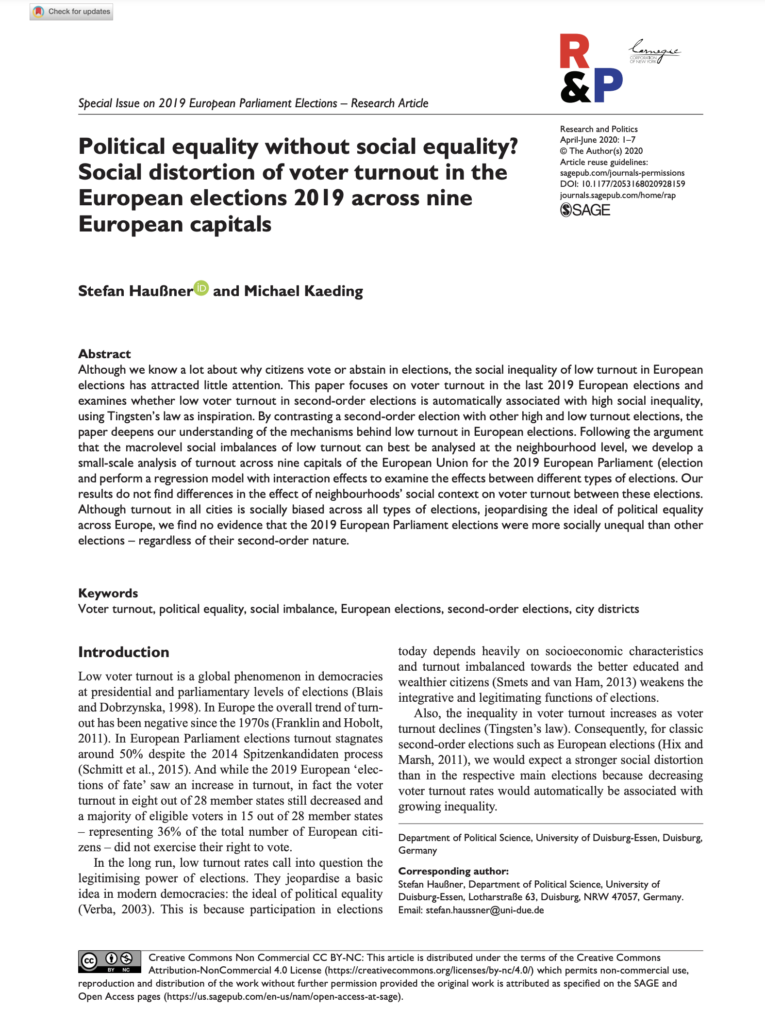Political equality without social equality? Social distortion of voter turnout in the European elections 2019 across nine European capitals. Haußner, S., Kaeding, M. (2020), in: Research&Politics (2019 European Parliament Elections Special Issue)
Although we know a lot about why citizens vote or abstain in elections, the social inequality of low turnout in European elections has attracted little attention. This paper focuses on voter turnout in the last 2019 European elections and examines whether low voter turnout in second-order elections is automatically associated with high social inequality, using Tingsten’s law as inspiration. By contrasting a second-order election with other high and low turnout elections, the paper deepens our understanding of the mechanisms behind low turnout in European elections. Following the argument that the macrolevel social imbalances of low turnout can best be analysed at the neighbourhood level, we develop a small-scale analysis of turnout across nine capitals of the European Union for the 2019 European Parliament (election and perform a regression model with interaction effects to examine the effects between different types of elections. Our results do not find differences in the effect of neighbourhoods’ social context on voter turnout between these elections. Although turnout in all cities is socially biased across all types of elections, jeopardising the ideal of political equality across Europe, we find no evidence that the 2019 European Parliament elections were more socially unequal than other elections – regardless of their second-order nature.




